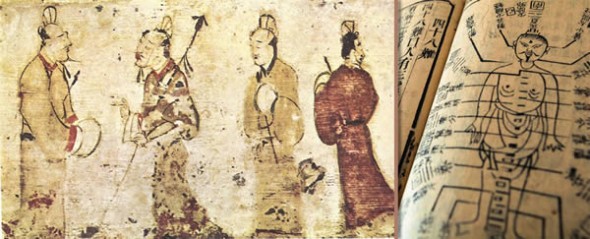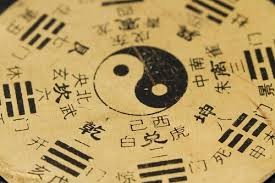



Chinese Natural Healing
Stephen Lau
Stephen Lau
Chinese Natural Healing
Stephen Lau
Stephen Lau






Anger Management
Anger management is about not being angry because you are not getting what you want.
Anger management is about not expecting too much from others as well as from yourself.
Just experience life as it unfolds itself. This is the essence of anger management. This is also Zen wisdom. (Zen is the
Oriental practice of emptying the mind through awareness and meditation.Zen has its origin from TAO, the wisdom of Lao Tzu, the author of Tao Te Ching, a book of poetry on human wisdom.) And Zen is the way to natural healing, which begins with harmony of the mind and the spirit.
Living a life of anger is not Zen lifestyle. If you are always angry with yourself or at others, you need to seek not a psychiatrist, but self-knowledge through Zen meditation to experience intuitive wisdom that will enlighten you, and show you the way to anger management, which is letting go of all your emotional attachments.
Anger Management: Don't Hold Your Grudge
Anger is a deep-seated feeling of resentment or rancor provoked by some incident or situation, for example, being unwilling to forgive someone. Anger management is not holding the grudge against anyone for anything.
Confucius, the great Chinese philosopher, once said, "When anger rises, think of the consequences." Yes, anger has consequences on your health: it increases your heartbeat; it triggers the release of hormones.
Learn how to use anger management to prevent harmful emotions from causing havoc in your mental well-being, which is an essential component of natural health for your overall wellness. Anger is usually a result of anxiety and stress triggered by an event, incident, or a person.
Anger management is also stress management, which is the building of resilience for stress relief. Effective stress management can turn stress into positive energy and enthusiasm for you. It is your best anger management.
Buddhism recognizes that feelings of hatred and ill-will often leave a lasting effect on your mind. When resentment has already arisen, the Buddhist view is to release them by going back to their roots through Zen meditation and receiving insight into the nature of reality.
Buddhism places much emphasis on the concepts of loving-kindness, compassion, altruistic or sympathetic joy, and equanimity, as means to avoiding anger and resentment in the first place. In other words, if you seriously consider your lifelong relationship with birth, old age, sickness, and death (known as the inevitable four phases of life in Buddhist teaching) with respect to all other beings in the world, it would give you a fresh perspective of Zen lifestyle with proper anger management.
Anger Management: Don't Look Back in Anger
Forgiveness means not looking back in anger. Forgiveness has health benefits, especially for the mind. Forgiveness is anger management because it focuses on letting-go of the past, whether it was pleasant or unpleasant.
Confucius once said: "It is easy to hate and it is difficult to love. This is how the whole scheme of things works. All good things are difficult to achieve; and bad things are very easy to get."
Remember, the person who is the least lovable is the person who needs the most love.
Scientific studies have shown that people who forgive are happier and healthier than those who hold grudges. One study has shown that the positive benefit of forgiveness is similar to all, whether it was based upon religious or secular counseling, as opposed to a control group that received no forgiveness counseling. The way of Zen may hold the key to successful anger management.
Buddha once said, "If we haven't forgiven, we keep creating an identify around our pain, and that is what is reborn. That is what suffers."
In Chinese culture and philosophy, forgiveness is not perceived as weakness but rather as great power. Forgiveness is a virtue of the weak, and an ornament of the strong. For anger management, don't ever look back in anger.
Anger Management: Don't Have Great Expectations in Life
According to the way of Zen, live your life with no great expectations.
Zen is not an organized set of philosophical teachings; it is about emptying your mind and experiencing the mind itself. In the emptiness of your consciousness, you are awakened to the oneness of self and all life. The way of Zen lifestyle is essentially the practice of awareness and meditation that can help you restore energy and build endurance for physical fitness, as well as suffuse your life with compassion and joy conducive to mental and spiritual wellness necessary for natural healing of the body and the mind.
The way of Zen focuses on the present moment. The past was gone and the future is unknown. Always focus on the process of doing things, not the outcome -- with no great expectations in between. That is the essence of Zen. It is not passive living, but rather living life to the fullest without being encumbered by its innate problems.
Life is not a problem to be solved; instead, it is a wondrous journey of adventure. The way of Zen is living a life free of worries and troubles, because it focuses on the journey, not the destination.
Confucius also said, "Life is really very simple, but we insist on making it complicated." Yes, we make life complicated because we have adulterated it with our own problems that come with our expectations.
Once you perceive life as a problem, you would spend the rest of your life figuring out how to avoid and solve the problems, and thus inadvertently creating undue stress and many more problems down the road.
That life becomes a problem to be solved is due to your great expectations in life. You want only the good experiences without the bad ones -- that is the root of all the problems in your life. Therefore, cherish no great expectations in life. Otherwise, you would retreat into dreams and fantasies, often the groundwork for depression or other mental disorders.
To illustrate, you get rid of old "undesirable" relationships, seeking new ones, criticizing the persons you are with in order to remain in your "false" comfort zone. Remember, you don't go to people to get what you want, you must find it within yourself. That is self-knowledge or enlightenment.
You do not realize how your craving comfort and peace, that is, your great expectations in life, may affect those around you, including yourself. Although dreams and fantasies may bring temporary relief, the bubble will burst sooner or later, and you are back to where you started, or even worse.
Stephen Lau
Copyrightę by Stephen Lau
Anger management is about not being angry because you are not getting what you want.
Anger management is about not expecting too much from others as well as from yourself.
Just experience life as it unfolds itself. This is the essence of anger management. This is also Zen wisdom. (Zen is the
Oriental practice of emptying the mind through awareness and meditation.Zen has its origin from TAO, the wisdom of Lao Tzu, the author of Tao Te Ching, a book of poetry on human wisdom.) And Zen is the way to natural healing, which begins with harmony of the mind and the spirit.
Living a life of anger is not Zen lifestyle. If you are always angry with yourself or at others, you need to seek not a psychiatrist, but self-knowledge through Zen meditation to experience intuitive wisdom that will enlighten you, and show you the way to anger management, which is letting go of all your emotional attachments.
Anger Management: Don't Hold Your Grudge
Anger is a deep-seated feeling of resentment or rancor provoked by some incident or situation, for example, being unwilling to forgive someone. Anger management is not holding the grudge against anyone for anything.
Confucius, the great Chinese philosopher, once said, "When anger rises, think of the consequences." Yes, anger has consequences on your health: it increases your heartbeat; it triggers the release of hormones.
Learn how to use anger management to prevent harmful emotions from causing havoc in your mental well-being, which is an essential component of natural health for your overall wellness. Anger is usually a result of anxiety and stress triggered by an event, incident, or a person.
Anger management is also stress management, which is the building of resilience for stress relief. Effective stress management can turn stress into positive energy and enthusiasm for you. It is your best anger management.
Buddhism recognizes that feelings of hatred and ill-will often leave a lasting effect on your mind. When resentment has already arisen, the Buddhist view is to release them by going back to their roots through Zen meditation and receiving insight into the nature of reality.
Buddhism places much emphasis on the concepts of loving-kindness, compassion, altruistic or sympathetic joy, and equanimity, as means to avoiding anger and resentment in the first place. In other words, if you seriously consider your lifelong relationship with birth, old age, sickness, and death (known as the inevitable four phases of life in Buddhist teaching) with respect to all other beings in the world, it would give you a fresh perspective of Zen lifestyle with proper anger management.
Anger Management: Don't Look Back in Anger
Forgiveness means not looking back in anger. Forgiveness has health benefits, especially for the mind. Forgiveness is anger management because it focuses on letting-go of the past, whether it was pleasant or unpleasant.
Confucius once said: "It is easy to hate and it is difficult to love. This is how the whole scheme of things works. All good things are difficult to achieve; and bad things are very easy to get."
Remember, the person who is the least lovable is the person who needs the most love.
Scientific studies have shown that people who forgive are happier and healthier than those who hold grudges. One study has shown that the positive benefit of forgiveness is similar to all, whether it was based upon religious or secular counseling, as opposed to a control group that received no forgiveness counseling. The way of Zen may hold the key to successful anger management.
Buddha once said, "If we haven't forgiven, we keep creating an identify around our pain, and that is what is reborn. That is what suffers."
In Chinese culture and philosophy, forgiveness is not perceived as weakness but rather as great power. Forgiveness is a virtue of the weak, and an ornament of the strong. For anger management, don't ever look back in anger.
Anger Management: Don't Have Great Expectations in Life
According to the way of Zen, live your life with no great expectations.
Zen is not an organized set of philosophical teachings; it is about emptying your mind and experiencing the mind itself. In the emptiness of your consciousness, you are awakened to the oneness of self and all life. The way of Zen lifestyle is essentially the practice of awareness and meditation that can help you restore energy and build endurance for physical fitness, as well as suffuse your life with compassion and joy conducive to mental and spiritual wellness necessary for natural healing of the body and the mind.
The way of Zen focuses on the present moment. The past was gone and the future is unknown. Always focus on the process of doing things, not the outcome -- with no great expectations in between. That is the essence of Zen. It is not passive living, but rather living life to the fullest without being encumbered by its innate problems.
Life is not a problem to be solved; instead, it is a wondrous journey of adventure. The way of Zen is living a life free of worries and troubles, because it focuses on the journey, not the destination.
Confucius also said, "Life is really very simple, but we insist on making it complicated." Yes, we make life complicated because we have adulterated it with our own problems that come with our expectations.
Once you perceive life as a problem, you would spend the rest of your life figuring out how to avoid and solve the problems, and thus inadvertently creating undue stress and many more problems down the road.
That life becomes a problem to be solved is due to your great expectations in life. You want only the good experiences without the bad ones -- that is the root of all the problems in your life. Therefore, cherish no great expectations in life. Otherwise, you would retreat into dreams and fantasies, often the groundwork for depression or other mental disorders.
To illustrate, you get rid of old "undesirable" relationships, seeking new ones, criticizing the persons you are with in order to remain in your "false" comfort zone. Remember, you don't go to people to get what you want, you must find it within yourself. That is self-knowledge or enlightenment.
You do not realize how your craving comfort and peace, that is, your great expectations in life, may affect those around you, including yourself. Although dreams and fantasies may bring temporary relief, the bubble will burst sooner or later, and you are back to where you started, or even worse.
Stephen Lau
Copyrightę by Stephen Lau